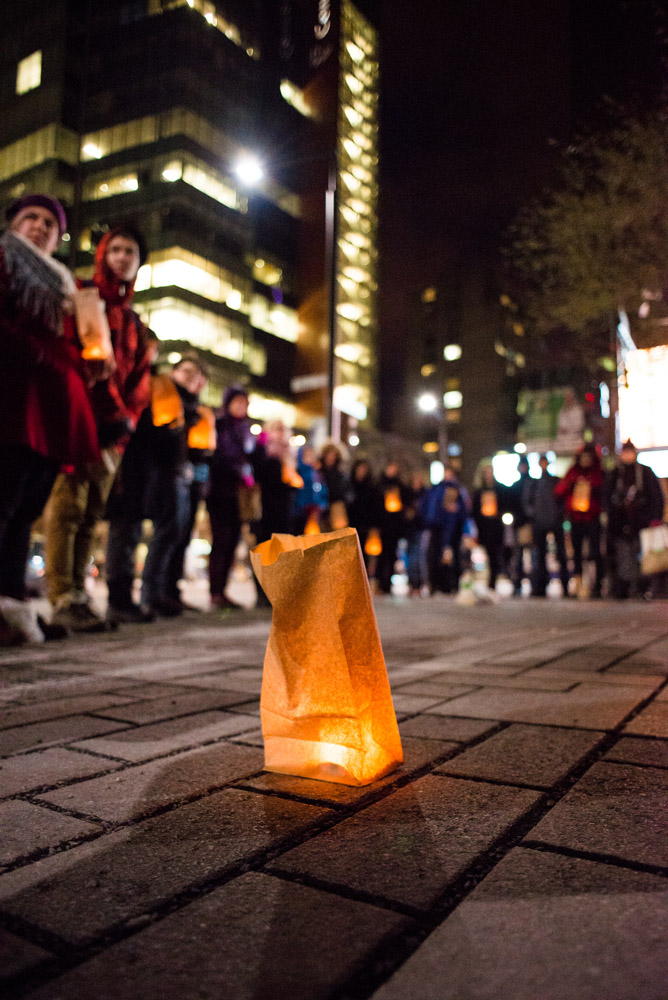Day of remembrance gives public a glimpse past suffering and injustice
A chilly Thursday night of Nov. 20 saw two dozen individuals gather at Norman Bethune Square and call out the continual discrimination and violence against the transgender community for the annual Transgender Day of Remembrance.
The vigil was held as organizer Ché Blaines read out the names of victims of transgender discrimination as people from all walks of life—friends, lovers, relatives—solemnly braved the cold with hushed tones and respectful silence and marked the names of those remembered across paper bags holding candles. Members of the transgender community often face higher chances of violence, including murder, as well as a much higher degree of depression, social isolation, and suicide. One recent study by the Williams Institute, dedicated to independent research on sexual orientation and gender identity law and public policy, found that over 40 per cent of transgender or non-gender conforming respondents had attempted suicide at some point in their lives.
Afterwards, the vigil broke up into smaller groups and dispersed to warmer spaces to discuss, process, and interact with anybody curious to come along. What followed was an intimate and informal chance to hear their stories and become more familiar not just with the individuals but with the various groups—transgender, queer, transitioning, transitioned, local and international—represented by the terms.
Participant Jade Hart considered events such as these important in bringing visibility to the challenges transgender individuals like her face in everyday situations like finding and maintaining employment and lodging and fighting for their rights. The South Shore where she lives is, compared to the island of Montreal, decades behind in awareness to the concept that gender may be in opposition to sexual organs—or may be beyond the binary itself.
“Unfortunately for us our solution to protect ourselves against discrimination is a big part of the problem. Public information about the trans community is scarce and sometimes not so accurate and this usually makes society confused [about] who we are,” she said of the one-dimensionality and stereotypes that account for the majority of interaction most society has with the transgender community.
She also considers the personal hurdle to be the only real barrier to acceptance. “A person’s will to either be open to accept/respect trans is wholly up to that individual.”









